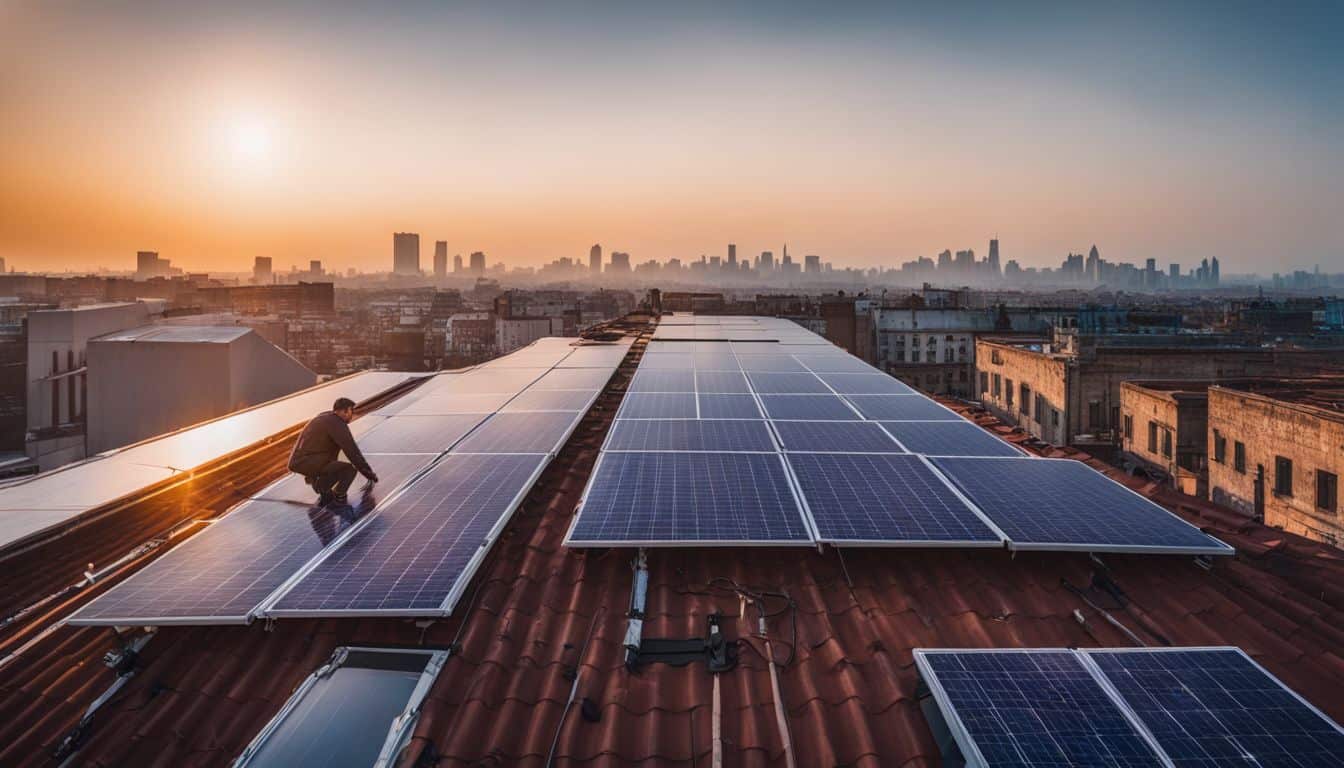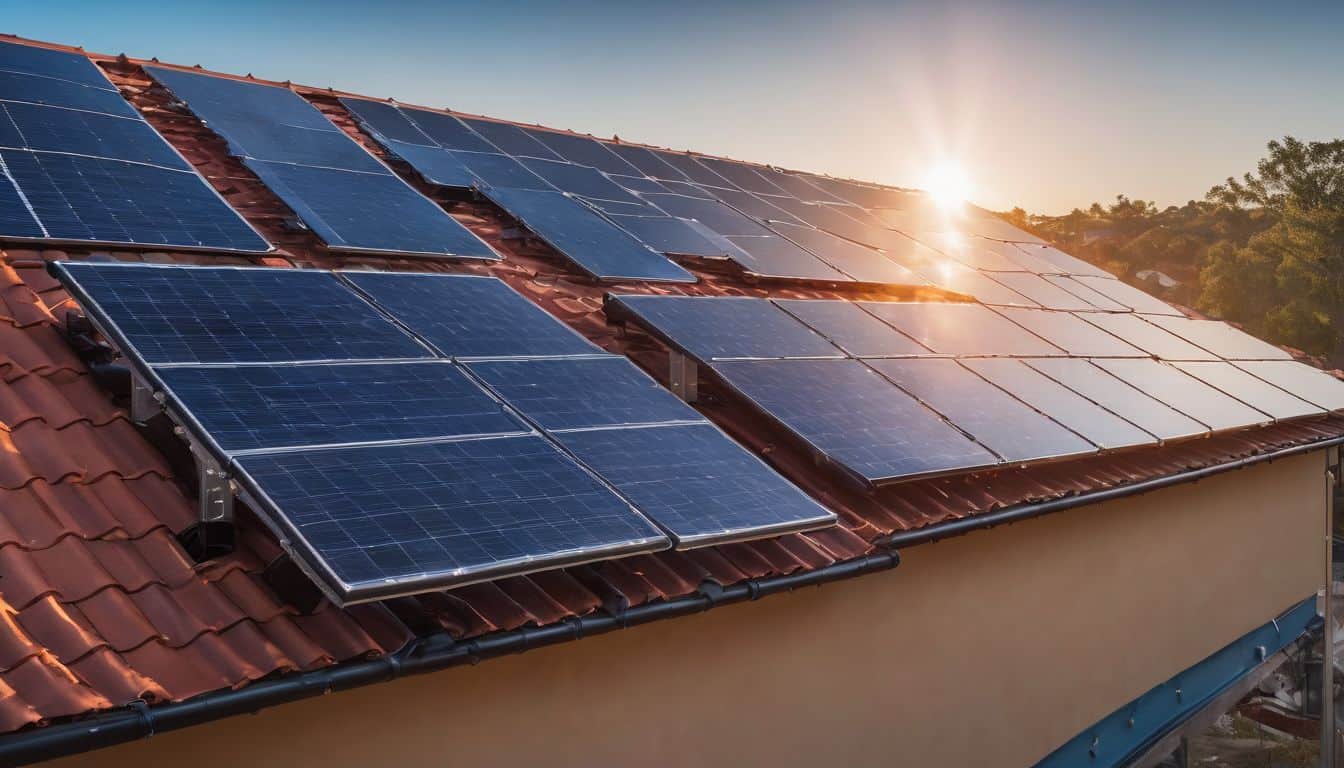As the world shifts towards more sustainable energy solutions, solar heating panels have become an increasingly popular choice for homeowners and businesses. However, installing these systems isn’t as simple as mounting panels on your roof. A complex web of regulations and codes must be navigated to ensure a safe, legal, and efficient installation.
This guide will walk you through the key aspects of solar heating panel installation regulations, helping you understand the process and requirements.
Building Codes and Permits
The first step in any solar heating panel installation is understanding and complying with local building codes and zoning ordinances. These regulations vary significantly from one jurisdiction to another, so it’s crucial to research the specific requirements in your area.
Most localities require a building permit before you can install solar heating panels. This process typically involves submitting detailed installation plans, including structural calculations to ensure your roof can support the additional weight. Common issues during the permitting process include concerns about roof load capacity, electrical wiring compliance, and adherence to fire safety codes.
For a deeper dive into the practical aspects of installation, check out our step-by-step guide to solar heating panel installation.
Zoning Considerations
Zoning regulations can significantly impact your solar heating panel installation. These rules often dictate setback requirements (how far panels must be from property lines or the edge of your roof), height restrictions, and special considerations for historic districts.
If you live in an area with a homeowners’ association (HOA), you may need approval before installation. While many states have “solar rights” laws that limit HOAs’ ability to prohibit solar installations, it’s still important to review your HOA’s rules and engage with them early in the process.
Electrical Codes and Safety
Solar heating panels, especially those with electrical components, must comply with the National Electrical Code (NEC). This code sets standards for safe electrical design, installation, and inspection. You’ll likely need to obtain an electrical permit in addition to your building permit.
Proper wiring and grounding are critical for safety and efficiency. The NEC provides detailed requirements for conductor sizing, overcurrent protection, and disconnect means. To ensure compliance with these regulations, it’s essential to work with a licensed electrician familiar with solar installations.
Plumbing and Mechanical Codes
For solar water heating systems, plumbing and mechanical codes come into play. These regulations govern the installation of piping, heat exchangers, and storage tanks. Key considerations include:
- Proper sizing of pipes and heat exchangers.
- Use of approved materials compatible with potable water systems.
- Installation of backflow prevention devices to protect the public water supply.
- Compliance with insulation requirements for energy efficiency.
Structural Considerations
The structural integrity of your roof is a critical factor in solar panel installation. Building codes require calculations to ensure your roof can support the additional weight of the panels, mounting system, and any potential snow load.
Wind and seismic requirements are also important, especially in areas prone to hurricanes or earthquakes. The mounting system must be designed to withstand these forces, and specific regulations may apply depending on your location.
Fire Safety Regulations
Fire safety is a crucial aspect of solar panel regulations. Many jurisdictions have adopted specific requirements for solar installations to ensure firefighter safety and access. These often include:
- Setbacks from roof edges to provide access paths for firefighters.
- Clear labeling of solar system components.
- Rapid shutdown capabilities for photovoltaic systems.
Understanding and complying with these regulations is crucial for ensuring the safety of your home and first responders in an emergency.
Environmental and Water Regulations
Solar water heating systems must comply with water quality standards to ensure the safety of potable water. In colder climates, freeze protection requirements are also critical to prevent damage to the system during winter months.
Some jurisdictions may require an environmental impact assessment, particularly for larger installations or those in environmentally sensitive areas.
Permitting Process
Navigating the permitting process can be complex, but it’s crucial to ensure your installation is legal and safe. Typically, you’ll need to submit:
- Detailed system plans and specifications.
- Structural calculations.
- Electrical diagrams.
- Site plans showing the location of panels and other equipment.
Your plans will be reviewed after you submit them, and you may need to make revisions before approval. Once approved, inspections will be required at various stages of the installation process.
Utility Interconnection Requirements
If your solar heating system includes photovoltaic panels for electricity generation, you must comply with utility interconnection requirements. This process involves:
- Applying for interconnection with your local utility.
- Complying with grid connection standards.
- Understanding and adhering to net metering policies, if applicable.
Incentives and Compliance
Many jurisdictions offer incentives for solar heating installations, including tax credits, rebates, and grants. However, these incentives often come with their own set of compliance requirements. Be sure to research available incentives and understand the eligibility criteria.
For homeowners looking to maximize the benefits of their solar heating system, our guide on mastering solar heating panels provides valuable insights and tips.
Conclusion

While navigating the regulatory landscape for solar heating panel installation can seem daunting, understanding these requirements is crucial for a safe, legal, and efficient system. By adhering to building codes, safety regulations, and permitting processes, you’re ensuring your system’s longevity and performance and contributing to the broader adoption of sustainable energy solutions.
Remember, regulations are in place to protect homeowners, installers, and the public. By following these guidelines, you’re taking a significant step towards achieving sustainable living through solar heating panels. As we continue to harness the sun’s power, let’s do so responsibly and in compliance with the regulations designed to ensure our safety and the effectiveness of these innovative systems.
For a broader perspective on how solar heating technology has evolved to meet these regulatory challenges, explore our article on the evolution of solar heating technology.
FAQS
What legal documents are necessary when installing solar heating panels?
Before beginning a solar heating panel installation, it’s important to have the proper legal documentation in place:
- A clear and detailed contract between you and the installation provider is essential
- The contract should outline all work to be done, including prices, timelines, and warranty information
- Additional legal documents may be required depending on your location and the specifics of your installation
- Always consult with a qualified legal professional to ensure you have all the necessary paperwork in order
How can I navigate the complex permitting process for solar panel installation?
The permitting process for solar heating panel installation can be complex, but there are steps you can take to navigate it successfully:
- Research the specific permitting requirements for your area, as they can vary widely by location
- Work with a reputable solar installer who has experience obtaining permits and navigating the regulatory landscape
- Allow ample time in your project timeline for the permitting process, as it can sometimes be lengthy
- Be prepared to provide detailed information about your installation, including site plans and equipment specifications
What are building and zoning codes, and why are they important for solar panel installation?
Building and zoning codes are local regulations that govern the placement and installation of structures, including solar panels:
- These codes dictate factors such as the height, size, and location of solar panels on your property.
- They are designed to ensure the safety and structural integrity of installations and maintain community aesthetics.
- Solar installers must carefully review and comply with each project’s applicable building and zoning codes.
- Failure to adhere to these regulations can result in fines, project delays, or even the need to remove installed panels.
Are there any alternatives to installing solar panels on my own property?
If installing solar heating panels on your own property is not feasible, there are alternative options available:
- Community solar programs allow multiple participants to share the benefits of a single solar installation.
- These programs typically involve installing a large solar array in a central location, and participants receive credit for some of the energy generated.
- Joining a community solar program can be a great way to access the benefits of solar energy without the need for a personal installation.
What local resources and incentives are available for solar heating panel installation?
Many areas offer a variety of resources and incentives to encourage the adoption of solar energy:
- Local government agencies and utility companies may provide solar installation grants, tax credits, or other financial incentives.
- Some areas offer expedited permitting processes or reduced fees for solar projects.
- Local solar advocacy groups and non-profits can provide information and support throughout the installation process.
- Researching and taking advantage of these resources can help make your solar heating panel project more affordable and streamlined.

Leave a Reply